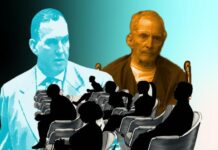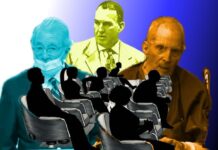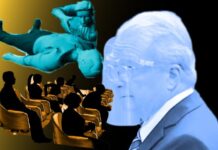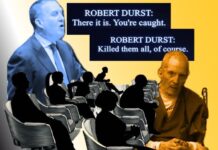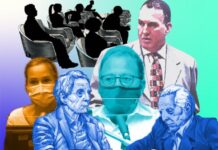CRIME STORY has received permission to re-print Michael Romano‘s newsletters from Stanford Law School’s Three Strikes Project whose mission is to reverse the most unjust criminal sentences. Romano and his colleague Susan Champion were interviewed by Amanda Knox for CRIME STORY and you can find the podcast and the transcript of that interview here. You can find a story about Romano’s participation in a U.S. Congressional field hearing on criminal justice reform here.
I couldn’t be happier to announce that Richard (“Bonaru”) Richardson is coming home! After years of fighting, litigating, and an hours-long hearing late yesterday afternoon, the Board of Parole Hearings finally found that Bonaru was no longer a danger to public safety and suitable for release.
Some of you may know Bonaru as Executive Editor of The San Quentin News, an award-winning monthly newspaper written, edited, and published from behind the walls at San Quentin and distributed to all prisons in California. Bonaru worked his way up through the ranks of the newspaper, beginning by cleaning toilets. Bonaru also distinguished himself as a leader in rehabilitative programming, earning a college degree from Mount Tamalpais College (formerly the Prison University Project), and awards and praise from several correctional officers who recommended his release. Over the past year, he contracted COVID-19, but persevered with his programming and volunteered to help correctional staff trying to manage the viral outbreak at San Quentin.
Bonaru has served almost 23 years for leading a botched robbery of a drug dealer’s home where almost nothing was taken and no one was physically injured. Today, Bonaru is considered a youthful offender, given his age at the time of the crime, but in 1998 he was sentenced to 47 years. In 2018, then-Governor Jerry Brown recognized Bonaru’s accomplishments in prison and commuted his sentence by sending his case to the parole board to consider early release.
Parole hearings are grueling, emotional, and complicated affairs, and yesterday Bonaru wore his heart on his sleeve for hours, describing his crimes, his remorse, his apologies to his victims, and his decades of rehabilitation and personal growth to the parole commissioners. There were tears and, at times, Bonaru’s signature, infectious laugh. In the end, a prosecutor from Stanislaus County who attended the hearing conceded that even Bonaru’s victims supported his release and along with the presiding parole commissioner commended the extensive research and briefing prepared by our amazing student, Mallorie Urban (SLS ‘21), who also appeared at the hearing, which was conducted by video. The presiding commissioner said he was proud to be the person to set Bonaru free.
As with all parole decisions, yesterday’s ruling will need to be reviewed by administration officials before Bonaru is finally able to walk free. When he does, we’ll be there waiting for him, along with his loving wife Lakeesha, and extended family.
Bonaru sends his deepest and warmest thanks to all of his friends, family, and supporters (some of whom are on this email list), the whole team at the Three Strikes Project, and especially Mallorie, who prepared him for the board’s questions, drafted our legal pleadings, and stood by him until the end.
It’s a great way to end the year.
Thank you all for your continued support and enthusiasm for our work!
Sincerely,
Mike
PS: We are also glad to see this morning’s editorial from the LA Times — Correct California’s Irrational Criminal Sentencing — supporting newly-elected Los Angeles district attorney Geroge Gascoón and our work for the Penal Code Revision Committee.


